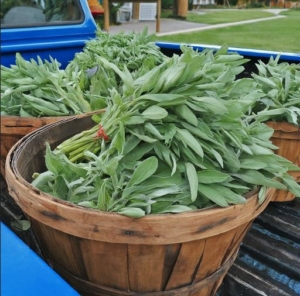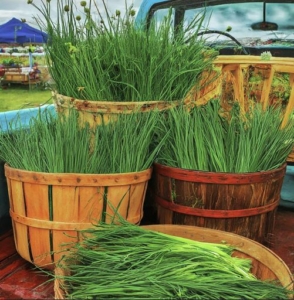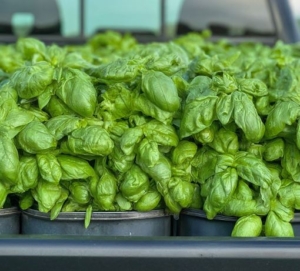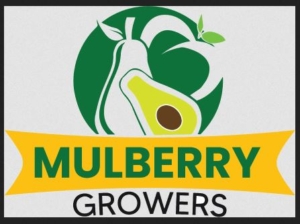Premium Herbs Middle East : A Comprehensive Outline of Essentials for Buyers 2024 -2025 | Qatar| Saudi Arabia | Kuwait| Bahrain| UAE
Premium Herbs Middle East is a category that Mulberry Growers supplies, including fresh basil, oregano, thyme, chives, sage, tarragon, and rosemary. We apply modern natural agricultural systems allowing for the cultivation of herbs in proper environments, thus optimizing flavor and quality. Let us guide you on how to select a great supplier of premium herbs by ticking major boxes of essentials.


Great Cultivation Techniques to Supply Premium Herbs Middle East
Our growing methods provide essential nutrients directly to plants, enhancing herb potency and consistency. For European importers seeking the best quality herbs, suppliers using organic an modern naturalist methods are a great choice. Our systems ensure herbs are cultivated in ideal conditions, free from diseases and contaminants. By prioritizing suppliers with advanced hydroponic techniques, businesses in Europe can offer their customers fresh, high-quality herbs that meet the highest standards.
Precision farming technologies are also crucial for optimizing herb cultivation, leading to improved yield and quality. This approach involves using data-driven methods to monitor and adjust growing conditions, such as soil moisture, nutrient levels, and light exposure. For European importers, suppliers employing precision farming techniques are advantageous as they can deliver consistently high-quality herbs. This technology ensures that each herb plant receives the precise care it needs, resulting in superior flavor and potency. Importers should seek out suppliers dealing in Premium Herbs Middle East who utilize these advanced technologies to ensure they are sourcing the best possible herbs.
Maintaining optimal growing conditions is also essential for producing high-quality herbs. Climate control systems allow for precise regulation of temperature, humidity, and light, creating ideal conditions for herb growth. For European businesses importing herbs, suppliers dealing in Premium Herbs Middle East who use advanced climate control technologies can guarantee the consistent quality of their products. These systems prevent environmental stressors that can negatively affect herb quality, ensuring that herbs remain fresh and potent from farm to table. Importers should prioritize suppliers with state-of-the-art climate control systems to secure top-tier herbs for their markets.
Market Adaptability
In the Middle Eastern market, adapting to current consumer trends is crucial for staying competitive. Trends in health and wellness, organic products, and exotic herbs are continually evolving, and suppliers must align their offerings with these preferences. European importers should seek suppliers dealing in Premium Herbs Middle East who are proactive in adjusting their product lines based on the latest market insights. By doing so, they ensure they are offering herbs that match consumer demands in countries like the UAE and Saudi Arabia. This adaptability helps meet market needs effectively and positions suppliers as leaders in the herb industry.
A supplier that offers a variety of herb options is essential to cater to the diverse preferences and culinary practices found in the Middle East. With a rich array of traditional and modern uses for herbs, importers benefit from suppliers dealing in Premium Herbs Middle East who provide multiple variants. This diversity ensures that businesses in the Middle East, such as those in Kuwait and Bahrain, can access the specific herbs needed for different applications. Suppliers should be able to offer a wide range of herb types to meet various demands and enhance their market appeal.
Flexibility in sourcing and supply is also vital for navigating the fluctuating market conditions of the Middle East. Factors such as seasonal changes and economic shifts can impact herb availability and demand. Suppliers dealing in Premium Herbs Middle East who maintain flexible sourcing strategies and adapt their supply chains to these changes ensure consistent delivery of fresh herbs. Importers should prioritize suppliers dealing in Premium Herbs Middle East who demonstrate the ability to quickly adjust their operations to meet evolving market conditions, ensuring a reliable supply of high-quality herbs throughout the year.
Supply Chain Efficiency
Streamlining logistics is essential to ensure the timely delivery of fresh herbs to the Middle East. Efficient logistics practices help minimize transit times and maintain the quality of herbs during shipping. Importers should look for suppliers dealing in Premium Herbs Middle East who employ advanced logistics solutions, including optimized route planning and real-time tracking, to ensure that fresh herbs arrive on time and in excellent condition. Effective logistics optimization helps prevent delays and ensures a consistent supply, which is crucial for businesses operating in countries like Qatar and the UAE.
The other efficiency measure is implementing robust inventory management systems, which is key to avoiding delays and minimizing losses in the herb supply chain. Effective inventory management helps suppliers keep track of stock levels, anticipate demand, and manage orders efficiently. For importers in the Middle East, selecting suppliers dealing in Premium Herbs Middle East who use sophisticated inventory management tools ensures that they can maintain a steady supply of fresh herbs without interruptions. Proper inventory control also helps in reducing waste and improving overall supply chain efficiency.
Strong relationships with reliable logistics partners are critical for maintaining supply chain efficiency. These partnerships help ensure that logistics operations run smoothly and that delivery schedules are met consistently. Importers in the Middle East should choose suppliers dealing in Premium Herbs Middle East who have established strong connections with dependable logistics providers. This collaboration ensures that fresh herbs are transported efficiently and arrive in optimal condition, meeting the high standards expected by businesses in the region.
Ethical Sourcing
Fair Trade Practices: Ensuring that herbs are sourced from suppliers dealing in Premium Herbs Middle East who adhere to fair trade practices is essential for maintaining ethical standards. Fair trade practices ensure that producers receive fair compensation and work under safe conditions. Importers in the Middle East should prioritize suppliers dealing in Premium Herbs Middle East who demonstrate a commitment to fair trade, which not only supports ethical labor practices but also enhances the credibility and sustainability of their sourcing operations. This approach aligns with growing consumer demand for ethically sourced products.
Supplier Audits: Conducting regular audits of suppliers is necessary to verify that ethical sourcing practices are consistently followed. Audits help ensure that suppliers comply with standards for fair trade, environmental sustainability, and social responsibility. Importers should select suppliers dealing in Premium Herbs Middle East who implement thorough auditing processes to maintain transparency and accountability. For businesses in the Middle East, this verification process helps ensure that the herbs sourced are produced responsibly and ethically, meeting the expectations of conscientious consumers.
Community Impact: Supporting suppliers dealing in Premium Herbs Middle East who have a positive impact on their local communities is an important aspect of ethical sourcing. Suppliers dealing in Premium Herbs Middle East who engage in community development, support local workers, and contribute to social projects demonstrate a commitment to responsible practices. Importers in the Middle East should choose suppliers with a proven track record of community involvement. This not only supports ethical sourcing but also enhances the overall value proposition of the herbs being imported, aligning with corporate social responsibility goals.
Quality Control Testing in Premium Herbs Middle East
At Mulberry Growers, we conduct rigorous microbial testing to ensure the safety and quality of herbs. This testing identifies any microbial contamination that could pose health risks. Suppliers should implement comprehensive microbial testing procedures to ensure that herbs meet safety standards and are free from harmful microorganisms. For importers in the Middle East, selecting suppliers dealing in Premium Herbs Middle East who prioritize stringent microbial testing helps guarantee that the herbs are safe for consumption and comply with health regulations, ensuring the well-being of end consumers.
Testing for harmful chemical residues is also essential to ensure that herbs are free from contaminants such as pesticides or heavy metals. Suppliers should conduct thorough chemical residue testing to ensure that herbs meet safety and quality standards. For importers in the Middle East, choosing suppliers dealing in Premium Herbs Middle East who adhere to rigorous testing protocols ensures that the herbs are not only safe but also meet regulatory requirements. This commitment to safety helps build trust with customers and maintains high product quality.
The other extra step is the use of shelf-life studies for determining how long herbs can maintain their quality under various storage conditions. These studies help identify optimal storage practices to extend the herbs’ usability. Suppliers should conduct thorough shelf-life studies to ensure that their products remain fresh and effective throughout their shelf life. For importers in the Middle East, selecting suppliers dealing in Premium Herbs Middle East who prioritize shelf-life studies ensures that the herbs delivered are of the highest quality and remain usable for an extended period.
Organoleptic Quality
Sensory Evaluation: Conducting sensory evaluations of herbs involves assessing their taste, smell, and texture to ensure they meet high-quality standards. This process is essential for maintaining premium organoleptic qualities, which are crucial for customer satisfaction. For European importers, suppliers dealing in Premium Herbs Middle East who regularly perform sensory evaluations are preferable as they ensure that herbs consistently meet desired flavor profiles and freshness. This quality control step helps in delivering herbs that enhance culinary experiences and align with consumer expectations. Importers should select suppliers committed to rigorous sensory evaluations to maintain top-tier product quality.
Flavor Profiles: Developing specific flavor profiles for different herb varieties helps meet premium quality standards and cater to diverse culinary needs. This practice involves carefully crafting and testing the taste attributes of herbs to ensure consistency and excellence. For European importers, suppliers dealing in Premium Herbs Middle East who focus on creating distinct and reliable flavor profiles offer a competitive edge. This approach ensures that herbs not only meet but exceed quality expectations. Importers should prioritize suppliers dealing in Premium Herbs Middle East who emphasize flavor profile development to provide their customers with exceptional and consistent herb products.
Quality Benchmarks: Establishing quality benchmarks based on sensory attributes ensures that herbs consistently meet high standards. These benchmarks are critical for maintaining uniformity and excellence in herb products. For European businesses importing herbs, selecting suppliers dealing in Premium Herbs Middle East who adhere to established quality benchmarks guarantees that the herbs they receive are of superior quality. This practice helps in achieving consistency in taste, aroma, and texture, which is crucial for consumer satisfaction. Importers should seek out suppliers dealing in Premium Herbs Middle East who have clear and stringent quality benchmarks to ensure they are sourcing top-quality herbs.
Ethical Labor Practices
Fair Wages: Ensuring fair wages is a fundamental aspect of ethical labor practices in the herb industry. European importers should prioritize suppliers dealing in Premium Herbs Middle East who provide fair and competitive wages to all workers involved in the cultivation and handling of herbs. Fair compensation not only supports workers’ livelihoods but also reflects the supplier’s commitment to ethical business practices. Importers should seek out partners who demonstrate transparency in their wage policies and adhere to fair trade principles. This approach ensures that the herbs sourced are not only of high quality but also produced under socially responsible conditions.
Safe Working Conditions: Providing safe and healthy working conditions is crucial for any ethical herb supplier. Importers in Europe should carefully assess their suppliers’ adherence to safety regulations and health standards. Safe working environments protect workers from potential hazards and ensure a stable and productive workforce. Suppliers dealing in Premium Herbs Middle East who invest in proper safety measures and health protocols contribute to the overall quality of their products. Importers should prioritize suppliers with robust safety and health practices to guarantee that the herbs they import are grown and handled in ethically sound conditions.
Worker Rights: Upholding workers’ rights across all stages of the herb supply chain is essential for maintaining ethical standards. European importers should partner with suppliers dealing in Premium Herbs Middle East who are committed to fair treatment and respect for workers’ rights. This includes ensuring freedom from discrimination, harassment, and exploitation. Importers should look for suppliers dealing in Premium Herbs Middle East who demonstrate compliance with labor laws and ethical labor practices. By choosing suppliers dealing in Premium Herbs Middle East who respect and uphold workers’ rights, importers contribute to a more ethical and responsible supply chain, ensuring that their herbs are sourced in a manner that supports human dignity and fairness.
Innovative Harvesting Methods
Hand Harvesting: Employing hand harvesting methods allows for the careful selection of herbs and minimizes damage to the plants. This traditional technique ensures that only the highest quality herbs are harvested, preserving their flavor and potency. For European importers, suppliers dealing in Premium Herbs Middle East who use hand harvesting demonstrate a commitment to quality and meticulous care. Hand harvesting is especially beneficial for delicate herbs that require gentle handling. Importers should seek suppliers dealing in Premium Herbs Middle East who utilize this method to ensure they are receiving herbs that meet the highest standards of freshness and quality.
Timing Optimization: Optimizing harvest timing based on herb growth cycles and quality indicators is essential for achieving peak herb quality. This approach involves carefully monitoring herbs to determine the optimal moment for harvest, ensuring maximum flavor and potency. European importers should choose suppliers dealing in Premium Herbs Middle East who employ timing optimization techniques to deliver herbs at their best. By aligning harvest schedules with growth cycles, suppliers can consistently provide high-quality herbs. Importers should prioritize suppliers dealing in Premium Herbs Middle East who implement advanced timing strategies to ensure their herbs are always fresh and of superior quality.
Gentle Processing: Using gentle processing techniques is vital for preserving the integrity and quality of harvested herbs. This includes minimizing mechanical damage and ensuring careful handling throughout the processing stages. European importers should look for suppliers dealing in Premium Herbs Middle East who prioritize gentle processing to maintain the herbs’ flavor, aroma, and nutritional value. Suppliers dealing in Premium Herbs Middle East who employ these techniques are more likely to deliver herbs that meet premium quality standards. Importers should seek out partners who use gentle processing methods to ensure that their products retain their optimal quality from harvest to delivery.
Technological Integration
Blockchain Tracking: Implementing blockchain technology provides transparent and tamper-proof tracking of herbs from farm to market. This technology ensures that every step of the supply chain is documented and verifiable, enhancing traceability and trust. For European importers, suppliers dealing in Premium Herbs Middle East who use blockchain tracking offer an added layer of security and transparency. This approach helps in verifying the authenticity and quality of herbs, ensuring they meet high standards. Importers should consider suppliers dealing in Premium Herbs Middle East who utilize blockchain technology to guarantee that their herbs are tracked and verified throughout the supply chain.
Data Analytics: Utilizing data analytics allows for continuous monitoring and optimization of herb quality throughout the supply chain. By analyzing data on growing conditions, processing, and storage, suppliers can make informed adjustments to enhance herb quality. European importers should seek suppliers dealing in Premium Herbs Middle East who leverage data analytics to ensure that herbs are consistently high-quality. Technology helps in identifying trends, managing risks, and improving overall efficiency. Importers who prioritize suppliers with robust data analytics capabilities can ensure that their herbs meet rigorous quality standards and perform optimally.
Automation: Incorporating automation in handling and packaging processes reduces human error and maintains consistency in herb quality. Automation technologies streamline operations, enhance precision, and improve efficiency, resulting in higher-quality products. For European importers, suppliers dealing in Premium Herbs Middle East who utilize automation are likely to deliver more reliable and consistent herbs. Automation helps in reducing variability and ensuring that herbs are processed and packaged to exacting standards. Importers should choose suppliers dealing in Premium Herbs Middle East who invest in automation to guarantee that their herbs are of the highest possible quality and meet all specifications.
How You Can Enhance Shelf Life
Preservation Methods: Employing effective preservation methods, such as natural preservatives or modified atmosphere packaging, extends the shelf life of herbs. These techniques help maintain freshness and quality during transportation and storage. For European importers, selecting suppliers dealing in Premium Herbs Middle East who use advanced preservation methods ensures that herbs arrive in optimal condition, ready for market. This approach minimizes waste and ensures that herbs retain their flavor and nutritional value for longer periods. Importers should consider suppliers with proven preservation techniques to maximize the shelf life of their herbal products.
Freshness Indicators: Incorporating freshness indicators in packaging helps monitor the quality of herbs and ensures they are consumed at peak freshness. These indicators signal when herbs are no longer at their best, allowing importers to manage inventory more effectively. For businesses in Europe, choosing suppliers dealing in Premium Herbs Middle East who utilize freshness indicators can enhance product quality and customer satisfaction. This feature helps in maintaining high standards and reduces the likelihood of offering subpar herbs. Importers should seek out suppliers dealing in Premium Herbs Middle East who provide these indicators to ensure they consistently deliver the best possible herbs.
Rotational Stock: Implementing a rotational stock system ensures that older herbs are used first, reducing waste and maintaining product freshness. This method involves managing inventory so that herbs with shorter shelf lives are prioritized for use. For European importers, suppliers dealing in Premium Herbs Middle East who employ rotational stock systems demonstrate a commitment to efficiency and quality control. This approach helps in minimizing spoilage and ensuring that only the freshest herbs reach the market. Importers should choose suppliers with robust inventory management practices to optimize the use of their herbal products.

Enhance Your Supplier Relationships
Partnership Development: Building strong, long-term partnerships with high-quality herb suppliers fosters reliability and consistency in the supply chain. European importers should focus on developing relationships with suppliers dealing in Premium Herbs Middle East who are committed to delivering premium herbs and maintaining high standards. Strong partnerships enable better communication, collaboration, and problem-solving, ensuring a more seamless supply chain experience. Importers who invest in building solid supplier relationships can benefit from improved product quality and supply chain stability. Prioritizing reliable and cooperative suppliers ensures a steady flow of top-quality herbs.
Supplier Training: Providing training and resources to suppliers helps them meet and exceed premium quality standards. European importers should work with suppliers dealing in Premium Herbs Middle East who are invested in ongoing training and development to ensure they understand and adhere to quality expectations. Training programs can improve suppliers’ practices in cultivation, processing, and handling, leading to better product outcomes. Importers who support supplier training can ensure that the herbs they receive meet high-quality standards and are consistently excellent. Investing in supplier development fosters a more effective and high-performing supply chain.
Performance Reviews: Conducting regular performance reviews of suppliers ensures ongoing quality and reliability in the supply chain. European importers should implement a structured review process to assess suppliers’ adherence to quality standards, delivery performance, and overall service. These reviews help in identifying areas for improvement and addressing any issues promptly. Suppliers dealing in Premium Herbs Middle East who are subject to regular performance evaluations are more likely to maintain high standards and improve their practices. Importers should prioritize suppliers dealing in Premium Herbs Middle East who are open to performance reviews to ensure the consistent quality and reliability of their herbs.
Contact Us – We Supply Herbs to the Middle East
We supply basil, sage, oregano, chives, thyme, tarragon, and rosemary to the Middle East, including: Qatar, UAE, Kuwait, Bahrain, Saudi Arabia, and other regions.

Welcome! Detail your inquiry or requirements here:
- Our Email: commercial@mulberrygrowers.com
- Call/WhatsApp: +254 716 150 111 OR +254 748 897 749
- Website: www.mulberrygrowers.com